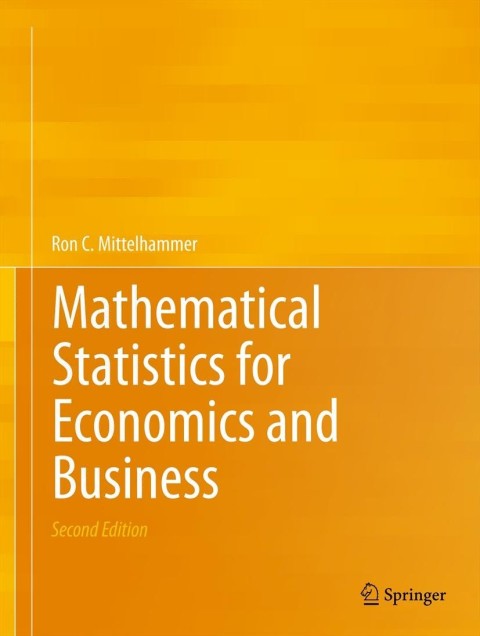(Generalized Least Squares Estimator) Consider the linear model (mathbf{Y}=mathbf{x} boldsymbol{beta}+boldsymbol{varepsilon}) in which all of the classical assumptions...
Question:
(Generalized Least Squares Estimator) Consider the linear model \(\mathbf{Y}=\mathbf{x} \boldsymbol{\beta}+\boldsymbol{\varepsilon}\) in which all of the classical assumptions apply, except that \(\mathrm{E}\left(\boldsymbol{\varepsilon} \boldsymbol{\varepsilon}^{\prime}ight)=\boldsymbol{\Phi} eq \sigma^{2} \mathbf{I}\). Consider a GMM estimator of the parameter vector \(\boldsymbol{\beta}\) based on the moment conditions \(\mathrm{E}\left(g_{t}\left(Y_{t}, \boldsymbol{\beta}ight)ight)=\mathrm{E}\left(\mathbf{z}_{t}{ }^{\prime}\left(Y_{t}-\mathbf{x}_{t} \boldsymbol{\beta}ight)ight)\) \(=\mathbf{0}\) where \(\mathbf{z}=\boldsymbol{\Phi}^{-1} \mathbf{x}\).
(a) Assuming temporarily that \(\boldsymbol{\Phi}\) were known, identify the sample moment conditions that would be used to define the GMM estimator. Solve the moment conditions to provide an explicit functional representation of the estimator (called the generalized least squares estimator in the literature).
(b) Discuss conditions under which the estimator you have defined in
(a) is consistent, asymptotically nor\(\mathrm{mal}\), and asymptotically efficient.
(c) For the general case where \(\boldsymbol{\Phi}\) is unknown, discuss how you would define an operational version of the GMM estimator, and discuss its relationship with the estimator in (a).
Step by Step Answer:

Mathematical Statistics For Economics And Business
ISBN: 9781461450221
2nd Edition
Authors: Ron C.Mittelhammer





